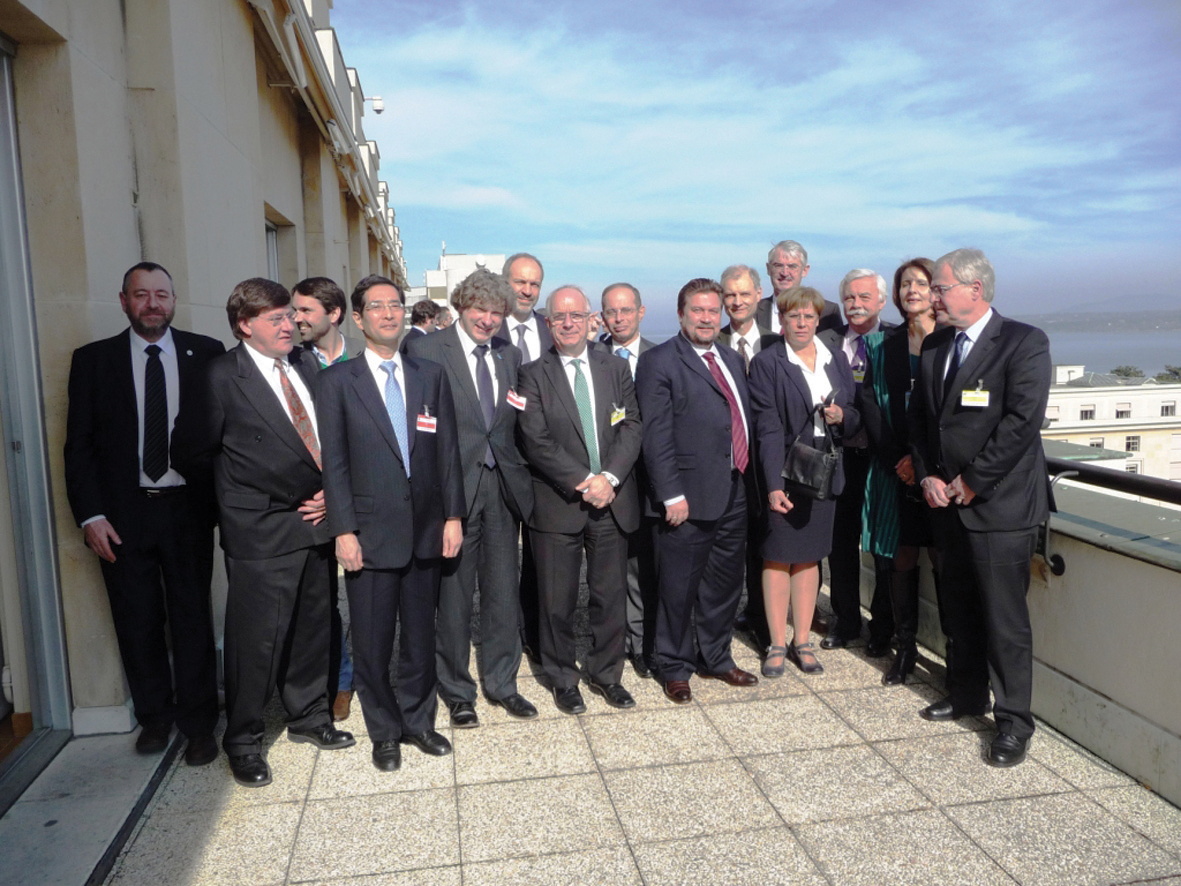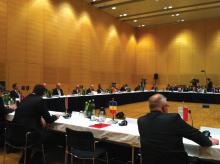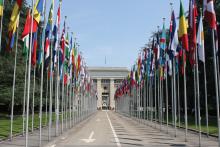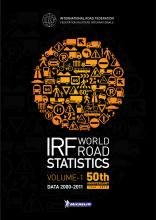IRF Geneva actively involved in the launch of the UNECE strategy package on ITS that is expected to mark a milestone for future United Nations activities on ITS.
High-level speakers, governments, experts and academia from all around the world gathered in Geneva on 28th February for a landmark ‘kick-off’ session aimed at positioning ITS more prominently on the policy makers agenda and to contribute to the policy-segment and launch of the new UNECE strategy package on ITS.
The strategy package contains

Speakers and Chairs gather before the UN ITS kick-off session
IRF Geneva actively involved in the launch of the UNECE strategy package on ITS that is expected to mark a milestone for future
High-level speakers, governments, experts and academia from all around the world gathered in Geneva on 28th February for a landmark ‘kick-off’ session aimed at positioning ITS more prominently on the policy makers agenda and to contribute to the policy-segment and launch of the new UNECE strategy package on
The strategy package contains three different publications dealing with a general overview on ITS, a strategic note looking at the gaps and impediments to the use of ITS and the UNECE Road Map on ITS, which identifies 20 key global actions to be performed by UNECE from 2012-2020.
IRF Geneva was prominently represented at this important international session, which focused around the Rio+20 goals, road safety, regional integration and ‘leapfrogging development’, as well as potential ITS values for a better society.
The director general of
The event showcased that ITS deployment is on track in many parts of the world, as outlined by prominent speakers from (inter alia) the
UNECE received valued support from governments and stakeholders in its efforts to identify issue areas where the organisation has an opportunity to take a leading role, such as solving liability problems, developing a common definition of ITS, advancing initiatives on variable message signs (VMS), further developing regulations that inform ITS standards, delivering research and data, as well as best practices, workshops and capacity building.
Already, a comprehensive range of topics and issues were addressed during the kick-off session:
- Currently, ITS lacks an institutional “home” at a global level, a forum where transport policy makers can meet and discuss policy frameworks. Many speakers stated their support for the UNECE’s ITS initiative in this regard.
- The question of harmonisation of international legislative frameworks (such as the
1116 European Union ITS Directive, relevant ISO standards and UN Conventions) was raised. This is a particularly complex issue as the prevailing legislations vary quite widely in terms of level and standing, hence adjustment and adoption procedures differ quite extensively. An informal group on ITS within UNECE, dubbed the “Consistency” group, has been set up to explore the appropriateness of updating the 1968 UN Vienna Convention on Road Traffic to bring it more into line with current advances in technology. The group is chaired by Dr. Luciana Iorio of the Italian Transport Ministry.
- The growing economic ramifications of in-vehicle electronics. In Germany, for example, such systems currently account for 40% of the added value of an individual car.
- Russia is rapidly catching up in terms of ITS deployment and is actively seeking greater international collaboration, for example in the field of satellite navigations systems. The country has also undertaken some significant first initiatives aimed at addressing harmonisation and standardisation.
Ultimately, the event concluded that ITS must be mainstreamed into the policy framework and that commitment to change is essential for success. Moving forward, UNECE will host annual round tables on ITS so as to further unbundle the issues and explore them in greater depth.
In parallel and in close cooperation, key issues debated during the session are also being actively addressed by IRF Geneva’s Policy Committee on Intelligent Transport Systems. If you would like to know more about the work of this Policy Committee or get involved, go to the ITS section of the %$Linker:








